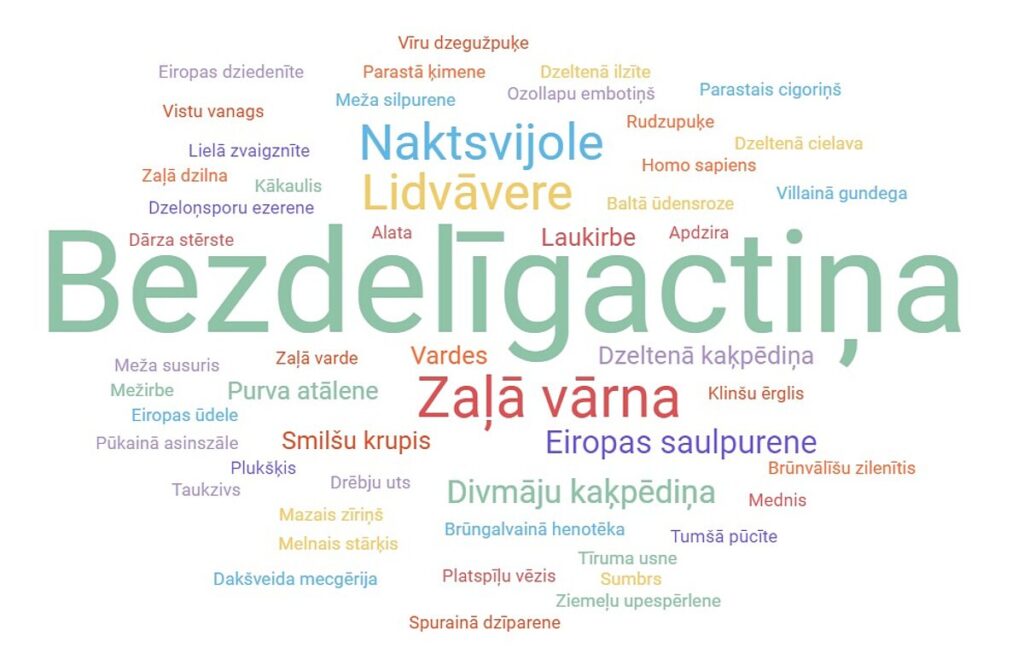Review of the project opening seminar
On 4 March of this year, the opening seminar of the project LIFE FOR SPECIES took place on the Zoom platform, gathering more than 150 participants.

The launch seminar of the LIFE FOR SPECIES project, which took place on 4 March on the Zoom platform, was opened by several guests.
Ilona Mendziņa from the Department of Nature Protection of the Ministry of Environmental Protection and Regional Development, the Rector of the University of Latvia Indriķis Muižnieks, as well as the General Director of the Nature Protection Board bequeathed valuable greetings within the start of the project. Project manager Gunta Čekstere presented the project goals, objectives and expected results. Jēkabs Dzenis from the Nature Conservation Agency explained the role of the project in the improvement of the wild species protection system, while Viesturs Ķerus from the Latvian Ornithological Society offered to look at the red list of birds. The presentation part of the project team was concluded by Pēteris Evarts-Bunders from the Daugavpils University, highlighting the need to audit the list of rare and protected plants with several examples. Throughout the seminar, participants had the opportunity to fill in a questionnaire, sharing their experiences and observations about species that are disappearing in Latvia and becoming less common. The bird’s-eye primrose, Russian flying squirrel, as well as the European roller and Butterfly-orchids received the most votes. It is gratifying that the questionnaire mentioned representatives of various species groups: mosses, lichens, vascular plants, lichens, amphibians, fish, birds, mammals. In the discussion section of the seminar, discussions were held on the work and expected results of the project, the distribution and conservation status of the species, as well as the planned communication activities of the project.
Thank you to all the participants of the event!

The Project “Threatened species in Latvia: improved knowledge, capacity, data and awareness” LIFE19 GIE/LV/000857 LIFE FOR SPECIES is implemented with the financial support of the LIFE Programme of the European Union and Latvian State Regional Development Agency. This publication reflects only authors’ view. Neither CINEA (European Climate, Infrastructure and Environment Executive Agency) nor European Commission are responsible of any use that may be made, or the information contained therein.
